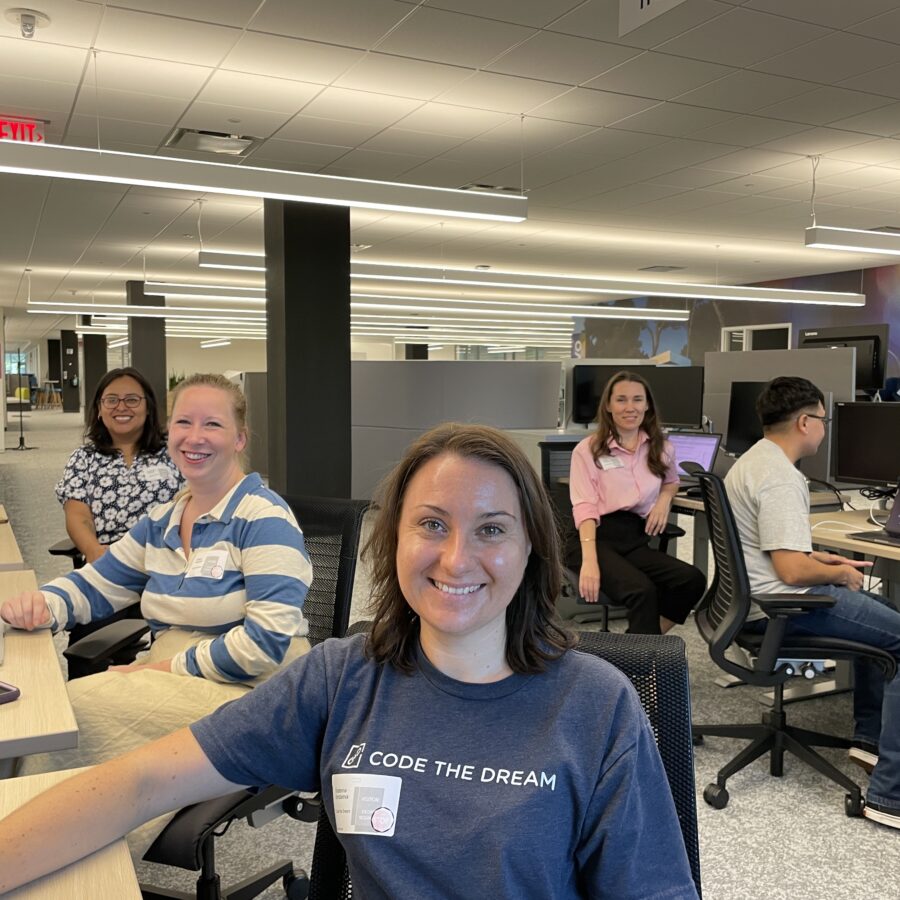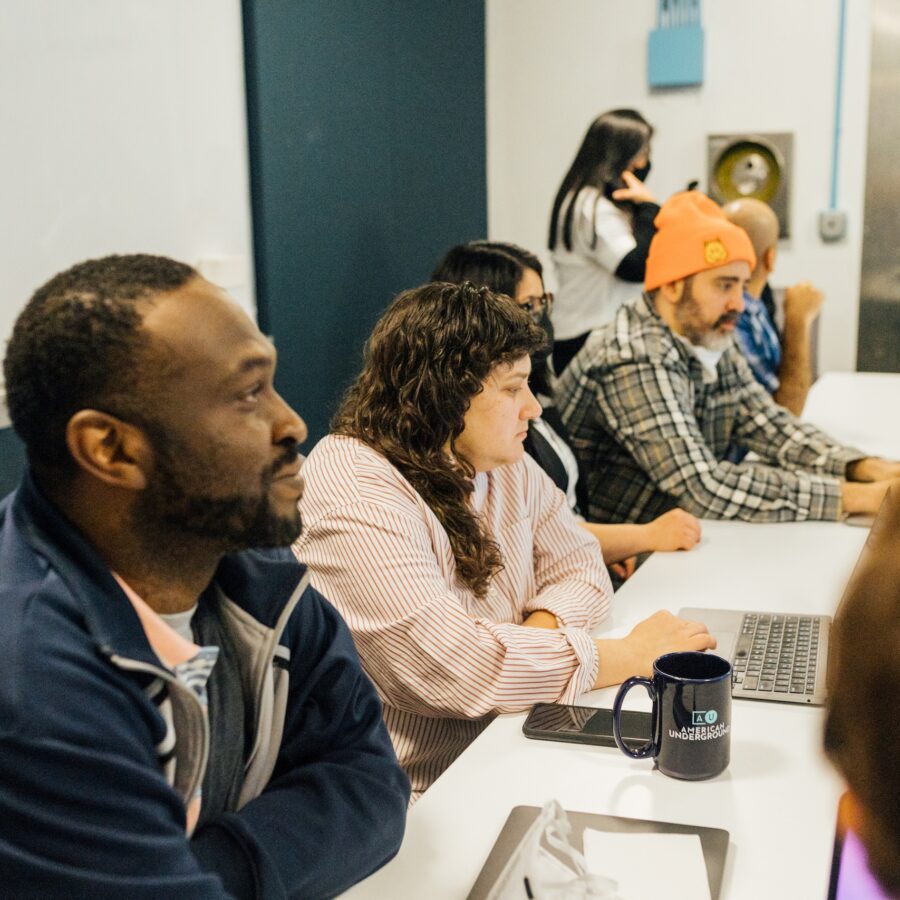DURHAM – Code the Dream is expanding its footprint, big time.
The Durham software development non-profit has launched its first national cohort of remote classes, opening access to its training program.
“For the last two years, we’ve turned away applicants from other states,” said its executive director and co-founder Dan Rearick. “So we’re happy to finally be able to able to say ‘yes’.”
“Holding remote classes allows participation from people in rural areas as well as local folks that face barriers like transportation and work schedules,” he added. “We especially need the voices and talents of people from low-income communities as we are using tech to address social issues.”
The initial expansion has been funded by charitable foundations and hundreds of individual donors.
Still, it’s hard to keep up with the demand.
More than 200 students from across the country applies for just 30 slots.
FREE TRAINING = MORE OPPORTUNITY
Launched in 2015, Code the Dream provides free training to those underrepresented in tech fields, including immigrants, low-income individuals, people of color, and women.
The original impetus for the program, recalled Rearick, came after meeting individuals affected by the American immigration policy commonly known as DACA (Deferred Action for Childhood Arrivals).
Among them was co-founder Ramiro Rodriguez, who also had DACA and his legal status in limbo.
“He knew the need firsthand. We knew there were hundreds of top high school grads around the Triangle who had lived here since they were children, did well in school, but still couldn’t get in-state tuition or financial aid to go to college,” he said. “So our goal was to create an alternative path to a secure, fulfilling career in tech.”
That said, the pair realized that immigration status wasn’t the only barrier people face, and the program is not exclusively for immigrants or young people with DACA.
Upon completion, graduates become eligible for a paid internship during which they build real apps for nonprofits, small businesses, and even government agencies.
“It’s a real win-win: our students gain tech experience and go on to fulfilling tech careers, and many of the apps they develop in the process make a difference in the communities our students come from.”
Approximately 80 percent of CTD interns then go on to land tech jobs at places such as IBM, Cisco, and Duke University, or earn significant college scholarships.





